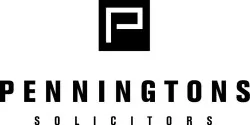Most of us in the United Kingdom are extremely familiar with the "MAESTRO" trade mark. It is the leading debit-card brand in the UK, and is more than likely emblazoned on a card tucked away in many of our wallets. It may therefore come as a surprise that the owner of this trade mark, Maestro International Inc (a subsidiary of Mastercard), has been unsuccessful in its attempts to secure a transfer of the domain name "maestro.co.uk". A recent decision by a Nominet appeal panel denied this transfer, affirming the Nominet expert's first instance decision.
Nominet is the UK organisation responsible for administering ".uk" country-code domain names. Any person seeking to use Nominet's procedures in relation to offending domain names must prove firstly that it has enforceable rights in the domain name, and secondly, that the domain name, in the hands of the registrant, is an abusive registration.
In this case, Maestro International's rights were not in dispute. The decision turned on whether or not the registration was abusive within the meaning of the Nominet policy.
Maestro International's arguments that the domain name was abusive included the grounds that:
- the registrant had engaged in a pattern of abusive registrations, having between May 2004 and May 2005 registered a number of domain names, including well-known trade marks of others (such as beverlyhillscop.co.uk and forrestgump.co.uk); and
- in response to an enquiry from a Maestro International representative, the registrant stated that he would only consider selling the domain name "for an exceptional offer".
The registrant countered that he was unaware of Maestro's brand, and registered the domain name with the dictionary meaning of the word in mind. No live services were provided by the registrant under the "maestro" brand, although the registrant asserted that he had made a significant investment into setting up business under this brand. He justified his choice of "maestro" by saying he had "plans to use it for musical downloads, educational and tuition services".
The panel was sceptical of the registrant's claims that he had not heard of the "Maestro" brand or that he hadinvested into the brand. They noted that the registrant's explanations for the choice of "maestro" appeared to be specifically pertinent services to the dictionary meaning of the word (the implication being that the explanations were conceived after the fact).
However, the panel found that when the trade mark in question is a dictionary word, there must be more than mere knowledge of the trade mark to justify a finding that the registration is abusive.
The panel did not give much weight to either the registrant's "talking up" of the value of a domain name (deemed to be commonplace in these circumstances) or his registration of other third party domain names. The panel felt that registration of the "maestro.co.uk" domain was not part of any pattern of making abusive registrations, as this particular domain name was registered only in April 2006 (quite some time after the registrant's earlier registrations). Plus, the registrant had a large portfolio of trade marks and only a small portion of it comprised of well-known third party marks. Therefore the panel refused to draw the inference of a pattern of abusive registration. On balance, the panel was not convinced that there was sufficient evidence of an abusive registration.
Because the Nominet policy places the onus on the complainant to prove that a registration is abusive, it can be more difficult to meet this burden of proof when a domain name has not been actively used; here the complainant will often have no option but to conjecture on the registrant's possible reasons for having registered the domain name. As this case shows, this is particularly difficult when the trade mark in question is a dictionary word.
This case demonstrates the difficulty that brand-owners face in proving that domain names are abusive registrations, even in this case which at first blush might have seemed reasonably straightforward. Cases such as these may well have the impact of pushing brand-owners towards settlement of domain name disputes. Therefore, this case serves as a reminder to companies to consider their domain name strategies in each territory which is of interest.
The content of this article is intended to provide a general guide to the subject matter. Specialist advice should be sought about your specific circumstances.


